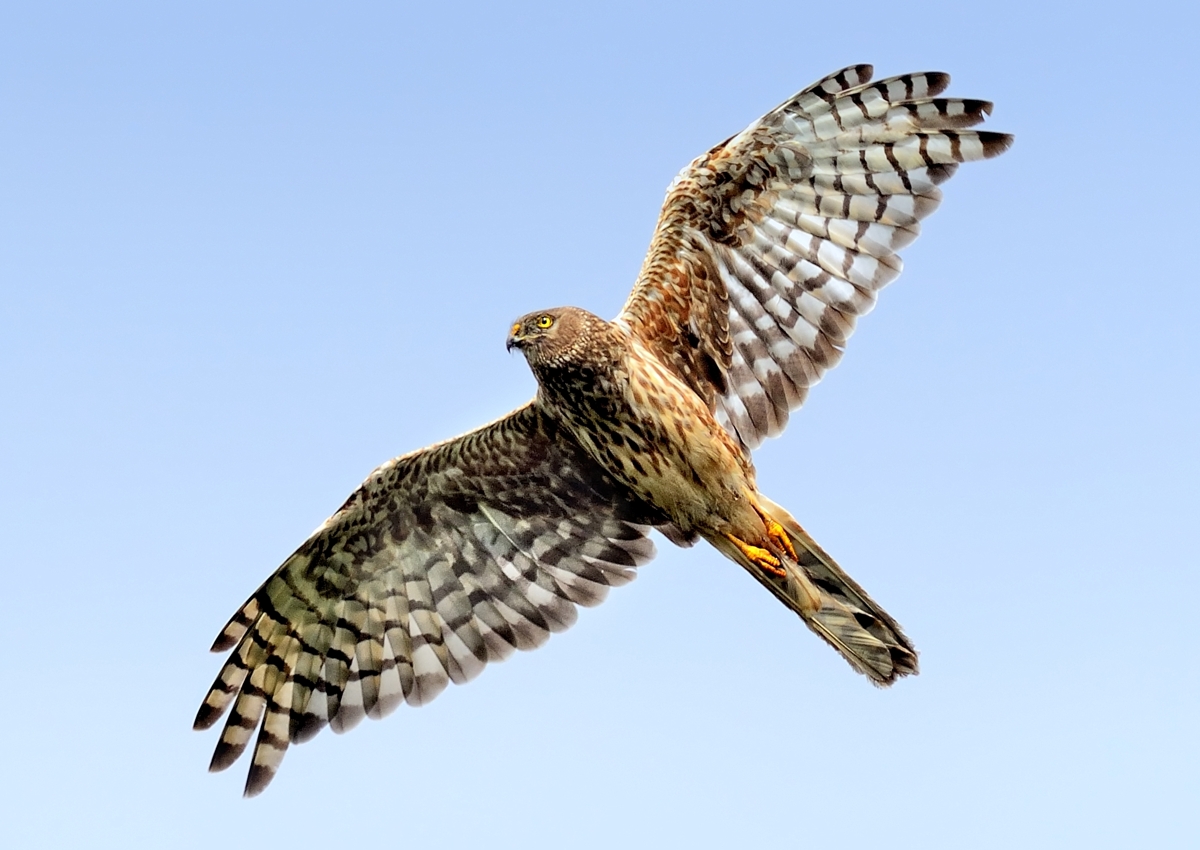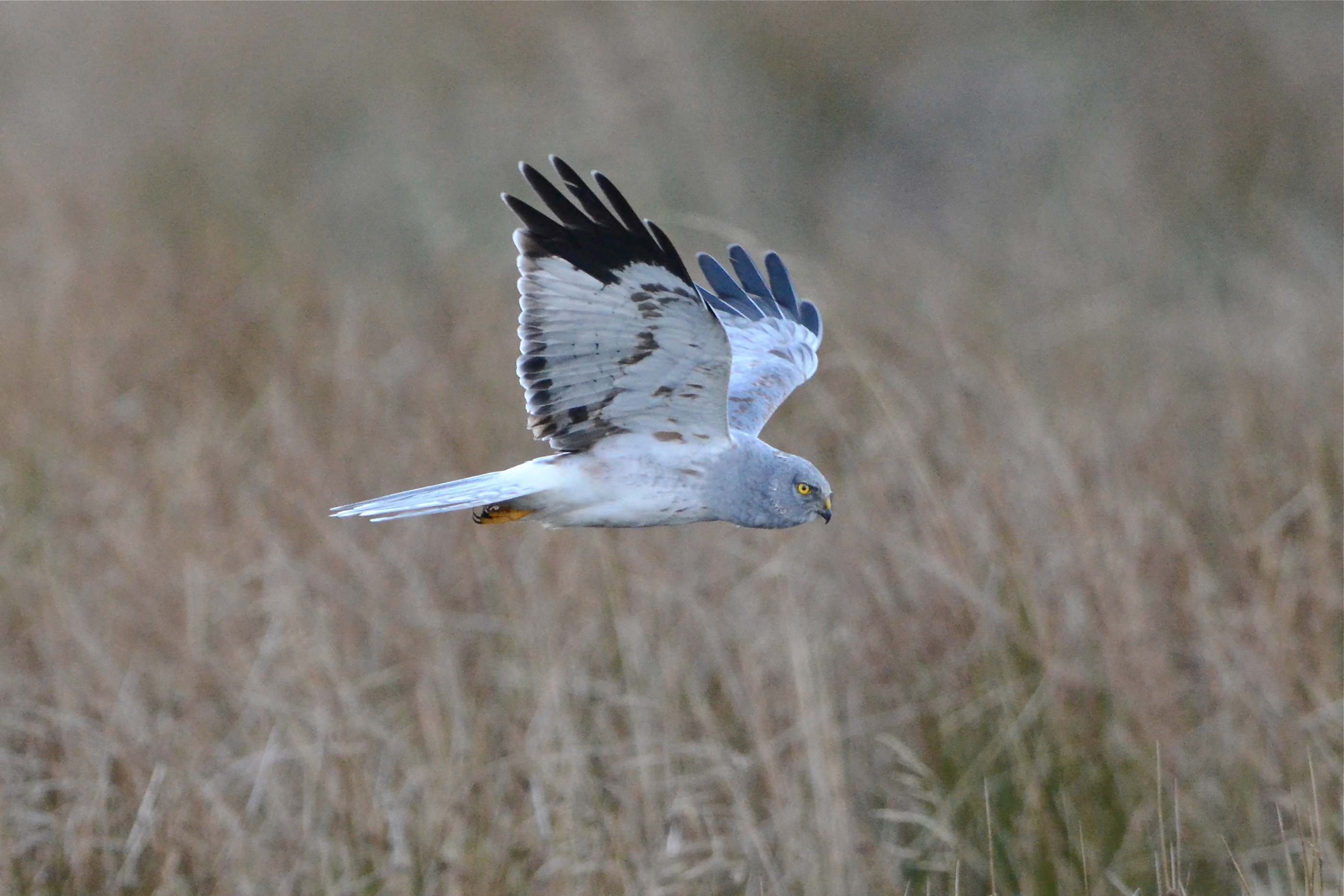Hen Harrier reaches the brink of extinction in England
For the first time since the 1960s, Hen Harriers have failed to nest successfully in England. Just two pairs attempted to nest this year in England, but both failed. At one of these sites, the RSPB was working with the landowner to ensure that the nest was protected. Sadly, the eggs never hatched. While conservationists believe this nest failed naturally, the Government's own wildlife advisors say that the population has been forced into this precarious position by illegal killing. The reason for the failure of the second nest isn't yet known.
No new Hen Harriers this season means that the species is on the brink of extinction in England. The news of the nest failure follows the publication in May of the State of Nature report, which showed that 60% of wildlife species monitored are declining across the UK.
Hen Harriers were once widespread across Britain but the species has endured decades of persecution, first forcing it out of mainland Britain by 1900. From remnant populations on Orkney and the Western Isles, changing land uses and the decline of persecution allowed them to spread south once more, reaching England shortly after the Second World War. The future prospects for this bird largely depend on the attitudes of grouse moor owners.

Hen Harrier, undisclosed site, Isle of Man (Photo: B Callow)
Martin Harper is the RSPB's conservation director. Commenting on this year's blank year for nesting birds, he said: "The Hen Harrier is one of our most charismatic birds of prey, enjoyed by many visitors to the uplands. However, managers on some intensively managed shooting estates have been attempting to remove this bird since it recolonised. The latest news is a huge setback and only a victory for those who want to see this bird of prey disappear from England's skies, but we will continue to fight to ensure that this bird has a future in some of our most iconic landscapes."
A Government scientific study — the Hen Harrier Framework — suggested there is capacity in the English uplands for over 300 pairs of the species. This study cited illegal persecution through shooting, trapping and disturbance as the main reason for the Hen Harrier's unfavourable conservation status in England.
In 2011, the Government published 'Biodiversity 2020' (the revised England Biodiversity Strategy). In this strategy the Government made a clear commitment that there should be no extinction of an English wild species at the hands of man. This mirrors an international commitment under the Convention of Biological Diversity. Martin Harper added: "With no birds nesting successfully this year, the Hen Harrier is clearly on the brink of extinction in England. We are eager to hear proposals from Defra about how the bird can be restored to its rightful place on the English uplands."
The RSPB is working with stakeholders as part of a Defra group to produce an emergency recovery plan for the Hen Harrier in England. The importance of this work has heightened by the terrible news from this year's breeding season. The RSPB believe it is vital this plan is properly resourced and prioritised by Government.
Former SAS soldier turned author Chris Ryan, who has been a long-term supporter of Hen Harrier conservation, said: "I have had the pleasure of watching these magnificent birds soaring over the uplands of northern England for many years. Knowing this inspirational bird has been pushed to extinction in England by illegal persecution is devastating. I want to see this species back in its rightful place on our moorlands."

Hen Harrier, undisclosed site, Perth & Kinross (Photo: S Gillies)
For centuries, the Hen Harrier has endured a very bad press and at some sites its appearance is not tolerated. Although the bird can take grouse, the RSPB believes there are ways of reducing conflict without illegally killing them. A long-term study at Langholm Moor in Scotland has revealed potential through a technique known as diversionary feeding. Using this measure gamekeepers provide alternative prey during the nesting season when the harriers are hunting intensively to feed their chicks. Martin Harper continued "We are aware of a small number of gamekeepers that have used this technique with great success and had the eggs hatched at the English nest, the local gamekeeper and landowner had agree to trial the technique. Unfortunately, these forward-thinking individuals appear to be the exception rather than the rule."
Bird of prey crime, including Hen Harrier persecution, is one of six agreed national wildlife crime priorities. However, this recognition hasn't been enough to save England's breeding population and the RSPB has repeatedly called for the introduction of vicarious liability — making landowners legally responsible for the actions of their gamekeepers — to improve protection.
Mr Harper concluded: "We are only a few days away from 'the Glorious 12th' — the traditional August start of the grouse-shooting season. My challenge to those who run grouse moors is simple: respect the law and allow Hen Harriers and other birds of prey to flourish again."

